The TV industry is looking at outcomes and attributions “in a unique way right now” to fend off digital and social competitors that have claimed advertising results for which they’re not always responsible, says NBCUniversal’s Mike Rosen.
“There’s that old movie expression don’t bring a knife to a gunfight,” Rosen adds.
Yet so far, that’s exactly what the TV industry has done Rosen, who is EVP, Advanced Advertising & Platform Sales, explains in this interview with Beet.TV contributor Ashley J. Swartz, CEO of Furious Corp., which specializes in linear TV and video yield optimization.
Digital and social companies in recent years “have really gone after, data, technology, advanced advertising and measurement in ways that the TV industry really never either had the capability to do or never felt the need to do,” says Rosen.
So he believes “there’s some catching up to do.”
Rosen and Swartz were among the featured speakers at last week’s Beet Retreat in the City: Television Advances as Consumers Choose, which was held at Meredith Corporation’s Luce Auditorium in Manhattan.
With assets like NBCU’s Audience Studio, the company has tried to level the playing field by bringing richer data and advanced audience targeting across all media forms—from national linear to addressable, digital, display and video.
“And now we want to go to that sort of sweet spot for the social and digital companies, which is their promise of delivering business outcomes,” Rosen says.
Like most of his peers, he sees that promise materialize as digital and social companies often taking credit “for something that may be more about correlation than causation, or sometimes just being in the right place at the right time.
“We feel that television has not gotten the credit it deserves for driving so many upper mid, lower funnel actions and behaviors on consumers. If we can get better at demonstrating that, we can get the credit we deserve,” Rosen says.
Asked by Swartz how traditional media mix modeling comes into play, Rosen’s view is that they’re probalistic models, only as good as the data that gets fed into them.
“I think part of the problem that we’ve seen is the data could be better, could be more deterministic.”
To advance its own cause, NBCU can point to advertiser case studies in which a variety of outcomes were measured. They include brand health metrics lift, sales life, driving website traffic, and incremental return on advertising spend.
“We’re seeing great results, we’re sharing it, we’re learning form it and I think that’s going to be a huge model for us going forward.”
This video is part of The Road to Cannes, a preview of topics to be addressed at Cannes Lions. The series is presented by the FreeWheel Council for Premium Video. For more videos from the series, please visit this page. FreeWheel is a Comcast company.







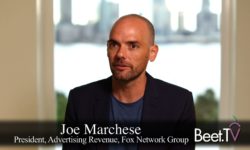
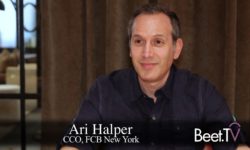
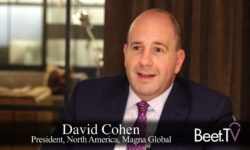
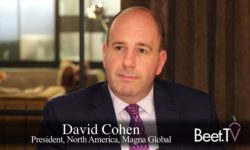
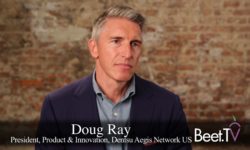
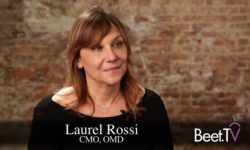


![New true[X] President Midha Looking To Leverage The ‘Connected Living Room’](https://www.beet.tv/wp-content/uploads/2018/05/pooja-midha-thumbnail-1-250x150.png)
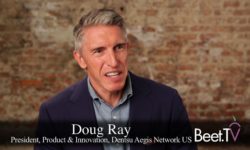

![[m]PLATFORM’s Hanlon Contemplates The Utility Of Data, Personalized Creative](https://www.beet.tv/wp-content/uploads/2018/05/thumbnail-102-250x150.jpg)
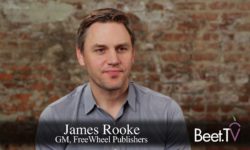
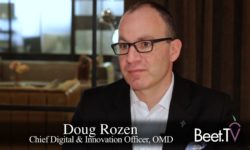
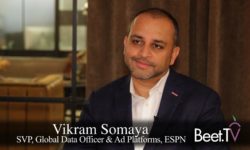
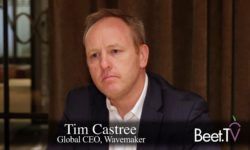
![Television Advances As Consumers Choose Interactive Advertising, true[X] Midha explains](https://www.beet.tv/wp-content/uploads/2018/05/pooja-midha2-thumbnail-250x150.png)






















